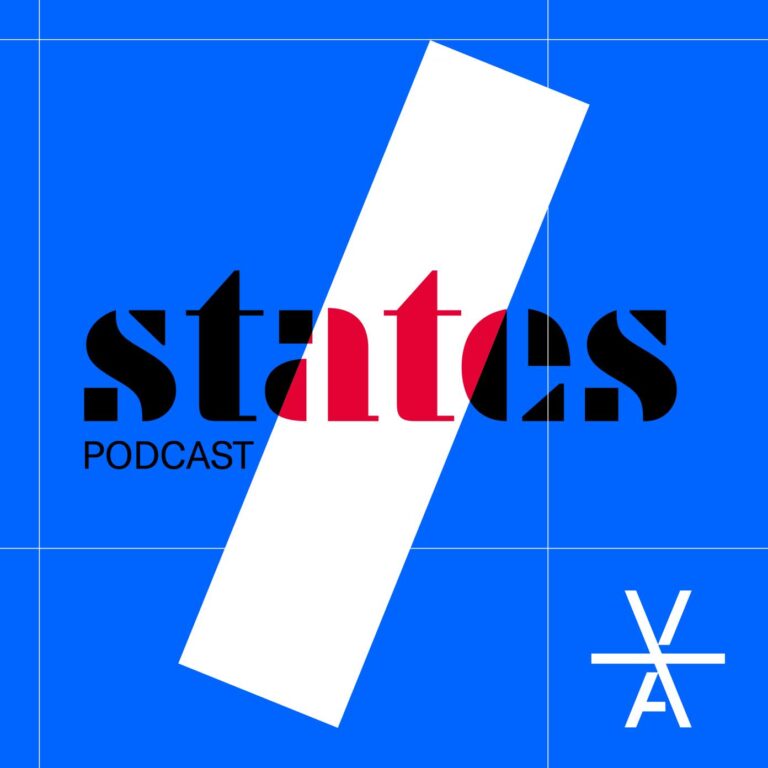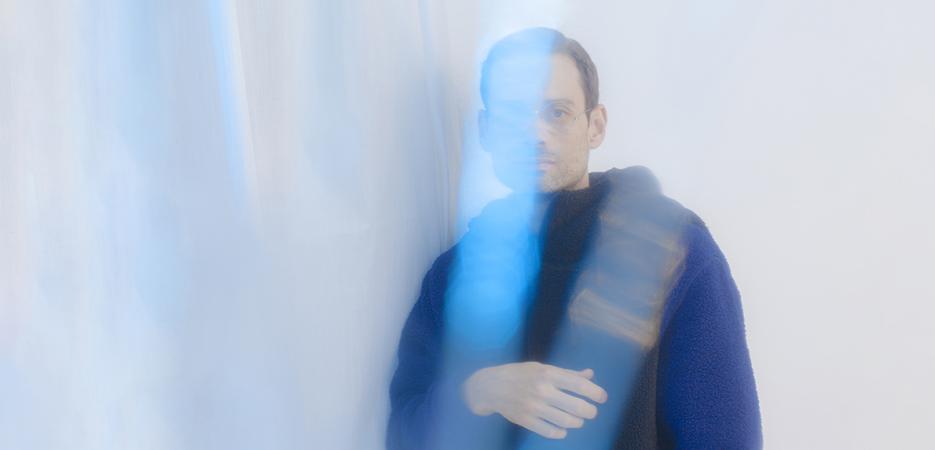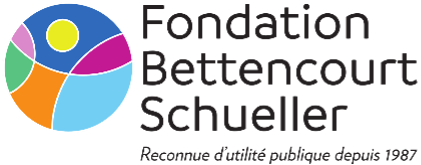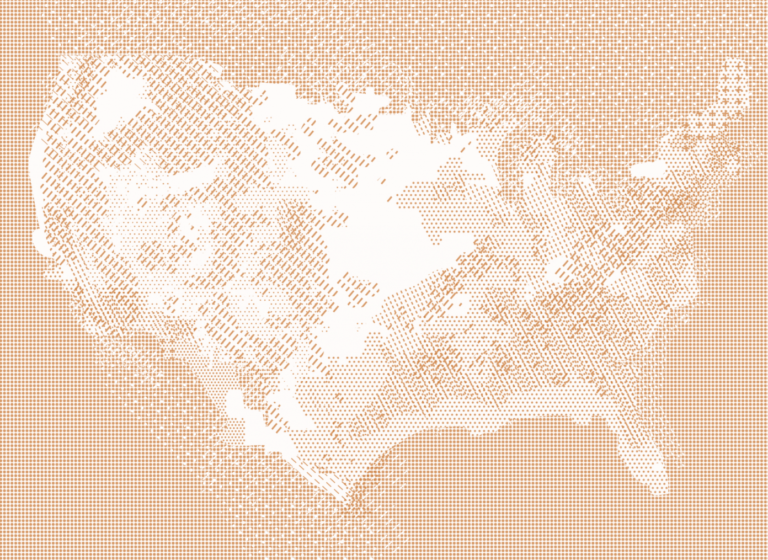
Felipe Ribon
Designer
October - December 2023

Photo by © Raf Studio
- Craft & Design
- New York
“If the search for new territories for design is the thread that gives coherence to my work, the postulate of a new design ethic forces us to question our models and to rethink our definition of comfort.”
What role does design play in the construction of human well-being? This line of questioning runs through all my work, where each project is structured around transdisciplinary methodology. In 2008, after training as an engineer at the École des Mines, I completed a graduate course in industrial design at the École nationale supérieure de création industrielle (ENSCI – Les Ateliers) in Paris.
I started out my career by exploring the influence of design on our relationship with health. For this, I carried out projects related to bodily and mental hygiene, including Une autre salle de bain (2010), which aimed to redefine hygiene using a broader, more responsible perspective. Mind the Gap (2014), meanwhile, presented a typology of objects that used the methods of hypnosis to explore the meanderings of the unconscious mind. Following these, I expanded my scope into more elusive avenues of research related to human perception. Objets-médiums (2015), Corps subtils (2016), The Host (2018) and Osmos (2019) formed a constellation of projects that saw me transcend our strictly material assessment of design by creating open systems, and making them available to the entirety of our senses and minds.
Due to these various undertakings, I have been awarded with multiple prizes: the Public Choice Prize of Villa Noailles, the Red Dot Design Award’s “Best of the Best” Award, the Grand Prix de la création of Ville de Paris (in 2009), and the Audi Talent Award (in 2013). In 2016, the Osmos perfume diffuser, which I co-created with silversmith Nicolas Marischaël, won the 16th Liliane-Bettencourt Prize. I was also a resident at Villa Medici in Rome, and Villa Kujoyama in Kyoto.
Born in Colombia in 1981, Felipe Ribon live and work in Paris. His work draws from the realms of the impalpable to generate objects and photographs designed to stimulate our perceptive faculties. He attempts to imagine new domains of design that bypass the boundaries built by Cartesian rationality. Rejecting design restrictions, challenging preconceptions, and disputing established proof are all key factors in his approach.
Coined in the 1960s, the term “comfort food” went mainstream in the 1970s when Liza Minelli used it to describe the emotion she experienced while eating a hamburger. Today, this widely used term describes any food that possesses a usually nostalgic or sentimental appeal. The choice of the word “comfort” also evokes the field of design. Designers use this term to refers to material commodities that procure a sense of well-being, but all too often overlook a whole set of intangible aspects that nonetheless radically impact our bodies. Herein lies the nucleus of my research thematic; the starting point of a project that contradicts the very tenets of design.
This discipline, born from the promise of a better world, has focused on the object’s function as the core of a quest for unlimited comfort. Pursuing new design horizons has been the guiding principle in bringing consistency and theoretical soundness to my work. But if we wish to present a new design ethic, we must challenge our existing models and rethink—as is the case for this residency—our definition of comfort. By questioning the function of comfort food and exposing the real or imagined emotions that it conjures up, we are brought to reflect on the imbalances arising from our excessive consumer society, with all its industrial surplus, waste, and vices. At the crossroads of gastronomy, photography, and industrial design, the Comfort Goods project aims to find links within popular knowledge around food and the concept of home.
The Comfort Goods project aims to further our understanding the concept of comfort food in North America by exploring how it relates to well-being. This research will be informed by the themes and methodologies of design. My residency in Brooklyn will provide an opportunity to discover all the dishes falling under the umbrella of comfort food. This borough is the ideal context for carrying out my fieldwork in order to understand the aspects that characterize US food culture, namely, as a dialog among all the diasporas – Italian, Afro-American, Latino, Caribbean, Asian, Jewish, etc. – that are continually growing and evolving across the country.
In partnership with

WantedDesign
About WantedDesign:
Founded in 2011 in New York City by French New Yorkers Odile Hainaut and Claire Pijoulat, WantedDesign has evolved into a dynamic connector and amplifier for global design, fostering creative synergy and serving as a pivotal crossroad for the international design community. Following an important transformation for these past years, the multi-generational, women-led company now includes Colombian partner Daniela Giraldo Hinestroza and will continue to build on its foundation of community, education, and curation. Through its diverse array of programs- including residencies, workshops, immersion trips, and a membership program- WantedDesign connects designers at every stage of their career with key players of the industry across the Americas and Europe. Claire and Odile, based in New York, have also taken on the role of Brand Directors for ICFF since 2023. Daniela continues to lead from her hometown of Medellín, Colombia.
WantedDesign’s legacy includes the successful WANTED (previously known as the WantedDesign Manhattan), acquired by Emerald Expositions in 2019 to become a section within the International Contemporary Furniture Fair. Co-founders, Odile and Claire, stepped into their role as brand directors of ICFF in 2023 and will continue to do lead the show in 2024. WantedDesign will continue to support the WANTED section at ICFF to spotlight outstanding emerging design.
About WantedDesign’s Residency Program:
Presented in partnership with Industry City, the WantedDesign Residency program in New York offers a one-of-a-kind opportunity for international creatives to immerse themselves in the city’s vibrant design scene. With the support of international cultural organizations, this tailored immersion allows residents to explore, research, network and gain a deeper understanding of the US market and of its opportunities.

Fondation Bettencourt Schueller
As a family foundation and a public-interest foundation at the same time, the Fondation Bettencourt Schueller has chosen to “take talents to the top” to contribute to France’s success and influence.
To this end, the Foundation seeks, selects, supports and promotes women and men who are rethinking our future in three fields that make a tangible difference to the common good: life sciences, the arts and an inclusive society.
With a philanthropic mindset, the foundation takes action through prizes, donations, personalized support, effective communication and co-created initiatives.
Since the foundation was founded in 1987, it has awarded prizes to 676 laureates and supported more than 1,400 projects led by talented individuals, teams, associations and organizations.
For more information: www.fondationbs.org | Twitter: @Fondation_BS | Instagram: @fondationbettencourtschueller | Facebook: @BettencourtSchuellerFoundation | #TalentFondationBettencourt




